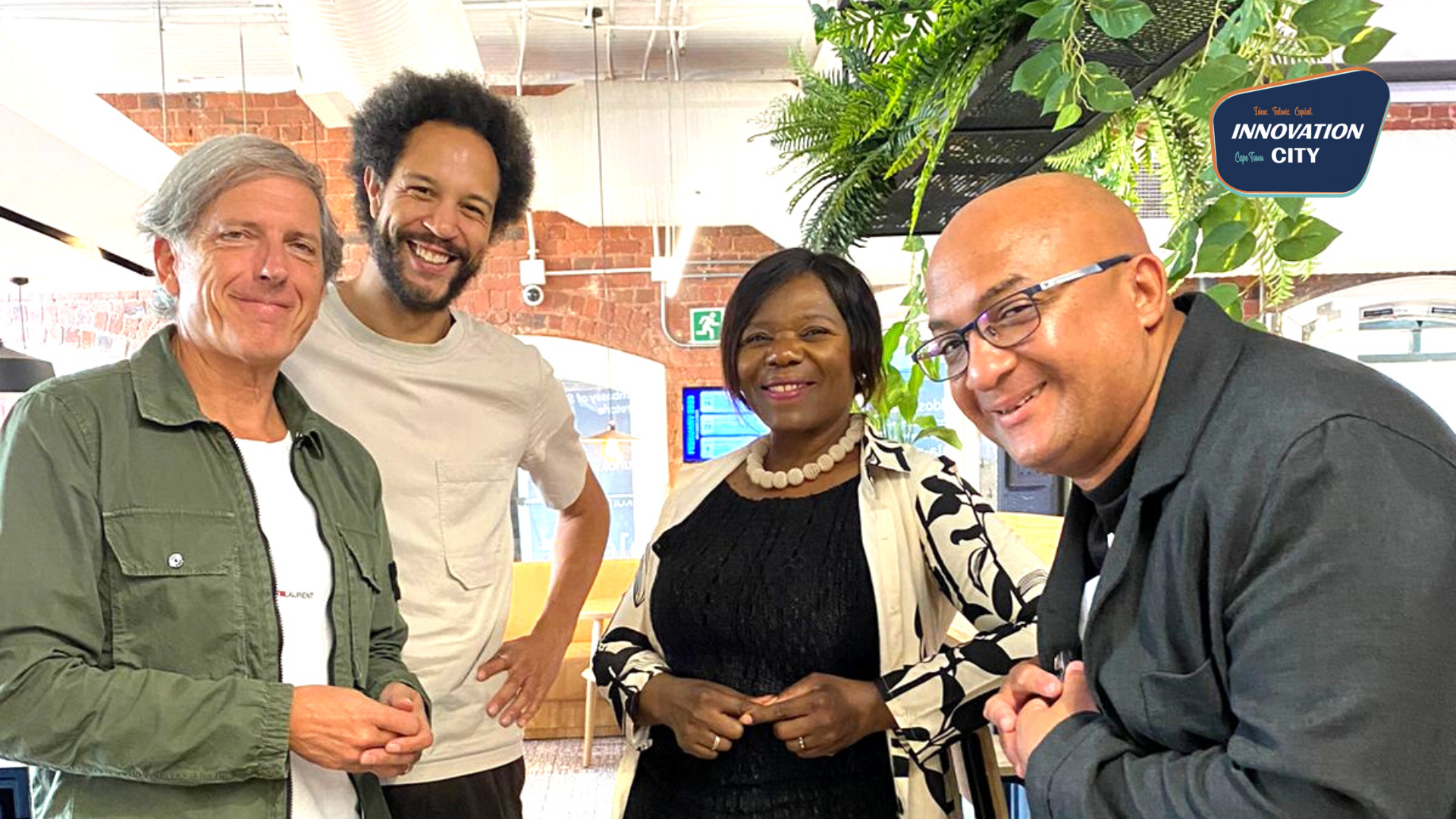
20 Feb Mavericks Brainstorm How to Make the Impossible Happen
It was Anneli Kampfer’s searing and apocalyptic song “Eve of Destruction” that inspired Sweden’s rather unorthodox ambassador to South Africa, Håkan Juholt, to gather an eclectic group of experts to share ideas on how to end the huge crises facing South Africa – and the world.
“You tell me, over and over and over again, you don’t believe we’re on the eve of destruction,” Juholt said, quoting the song at this meeting of minds at Innovation City in Cape Town on 15 February, which he titled “Pioneering the Possible”.
He recalled that the idea for the conference was sparked when Daily Maverick editor-in-chief Branko Brkic had played him the video of Kampfer’s song, with its images of the destruction wrought by war and natural disasters precipitated by climate change.
“It’s the prominent theme for what must be done right now in our time,” Juholt said.
“You and I, all of us in this room, are in the same boat. And we are on the eve of destruction. What we each do is not enough. We can’t continue to work within our own silos. We must reach out and combine different expertise.”
And so a highly diverse group of experts in their fields gathered: scientists, economists, diplomats, politicians, journalists, lawyers, academics and activists.
Sinje Gottwald set the tone of adventurous ambition by riding into the room on a CAKE electric motorcycle at the end of her four-month, 13,000km journey from Spain through West Africa to the southern tip of Africa, a world first.
To South Africans griping about load shedding, her implicit message was “you ain’t seen nothing yet” as she described the immense challenge of recharging her bike in countries such as Sierra Leone and Liberia, “which basically don’t have electricity”.
She said: “With this adventure I not only wanted to open up my own and people’s views and ideas about this continent, but also give an example of what is possible even if the challenge seems too big at first. We are capable of a lot more than we think.”
Outside stood a Swedish Scania truck, in Shoprite Checkers livery, which runs entirely on batteries, generating 3ookW of power, as Scania Western Cape MD Marius Steenkamp pointed out.
Like Gottwald, though, for now the truck’s drivers face the problem of recharging those batteries, which they can only do at their base, limiting the vehicle’s range to Cape Town and its environs.
Sara Radu, vice-president of the Swedish company Polarium, described how it had built its third factory for manufacturing recyclable lithium-ion batteries in Cape Town, and had done so in just nine months.
Moving from the environment to society, economist Roelof Botha advocated for a basic income grant, saying all South Africans would benefit as it would boost the economy by transferring money from people with a low propensity to consume (the middle class, with savings) to the poor, who would spend it all.
Against the sceptics, Botha contended that no country had been more successful in alleviating poverty – through social security programmes – than South Africa, where social protection was the second largest government spending item after education. And that excluded community development spending.
He stressed, though, that the basic income grant should be paid only to the poor.
He also strongly advocated for the child support grant – which he said was now by far the largest component of social protection – to be paid only to unemployed caregivers. That would reduce the income of the benchmark couple with two children now earning up to R100,000 by just 10% – but would increase the income of unemployed caregivers by 69%.
Thuli Madonsela, the former Public Protector, who is now professor of law in social justice at Stellenbosch University, told Botha she liked his idea of moving away from a universal basic income grant because South Africa was an outlier and a universal grant was predicated on a presumption that the world is the same.
The moderator, Kieno Kammies, said he was glad he was no longer a journalist because the media was so full of “skop, skiet en donder and the world is going to shit”.
He asked Brkic what he believed the role of the media was in pioneering possibilities.
Brkic said: “We see ourselves as infrastructure. I can’t see any society not only thriving but even surviving without knowing what the truth is. The media has been one of the greatest contributors to the incredible development that we have been through.
“But of late truth happens to be under the greatest threat, [endangering] all the values, all the civilisation that we have. And I see our role as the defence of the truth. You can have different interpretations. But the facts are the facts. The truth is the truth.”
Brkic said he had recently spent six weeks in the US and had lost faith in humanity.
“They can’t agree on basic facts. And that’s the success of, I call them, the forces of entropy. They have relativised truth so much that truth becomes the biggest factor that’s worth fighting for.
“We in South Africa actually have a chance, still. We are not past the point of no return. But it’s a race and it’s a race that society may lose.”
Daily Maverick assistant editor Marianne Thamm expressed concern that academics were no longer reaching the public with their research. Under apartheid, academics had exposed the impact of migrant labour, forced removals, the effects of deprivation on child development, and militarisation. But that was no longer the case, perhaps because the battle lines had been more clearly drawn under apartheid.
Source: Daily Maverick



